The advent of the paperless society?
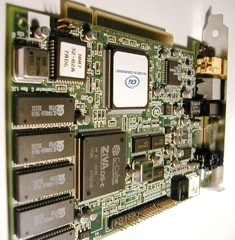 Photo above: freedigitalphotos.net
Photo right: Sebastien Clark
Photo above: freedigitalphotos.net
Photo right: Sebastien Clark
|
This is a brief comparison and evaluation of print and electronic media, followed by a poll on reading and writing habits at the turn of the 20th to the 21st century.
|
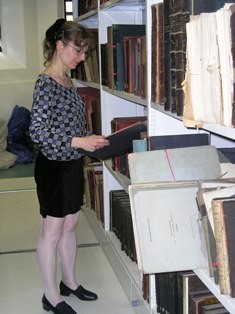
Two species that are predicted to die out soon: books and librarians
|
Before you read on, may I ask you for your opinion? Otherwise, go right to the discussion of the issue.
Introduction
|
My only experience of the omnipresent computer games has been the vivid description of one in a novel. I read it in the shape of a paperback, therefore in the time-honoured shape of the codex. The hyper-realistic, addictive, game was linked to, of all things, an illustrated mediaeval codex, which likewise grew into an obsession for the protagonist. In order to point out the priorities, the thriller was named after the more engrossing and enduring matter of the two: Codex.
Now I wonder what the balance will be in the future: will we still measure information, communication and knowledge by the written and above all the printed word; or will the electronic multimedia prevail in usage and authority; or is there a third way? And whichever is likely: will we still need paper? Let us glimpse at the current situation.
| |
| |
"'What we plan to do is have people encounter the texts in Shakespeare and the ideas in the text at many points within a really fun, multiplayer game' (...).
The grant [to set this up is] due to be announced on Thursday at a press conference that will be simulcast in online game Second Life."
The Epoch Times,
25-31 Oct 2006
|
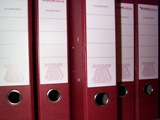
|
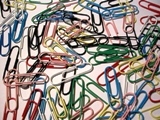
|
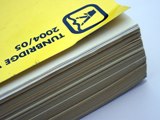
|
|
Whole forests are destroyed in order to proclaim the advent of the paperless society.
D. J. Foskett
|
Photos left and middle: www.freeimages.co.uk; right: freedigitalphotos.net
For decades, the transition from a print-based civilisation to a computer-based and hence "paperless" one has been announced, hailed, and lamented by experts. Most other people still have only a vague or partial idea of what such a concept means and implies, yet they, too, are passionately divided upon the issue.
There are two separate questions to be discussed here: Are we really on the way to a global electronic community without the need for paper? And if so, is it desirable or deplorable, and why?
Since there are many different types of digital media, I shall consider these one by one and compare them with their equivalents in print. This will bring to light at least some major advantages and disadvantages of the two types of communication, before we approach a judgement.
The characteristics of the main digital media
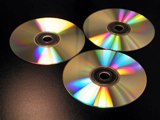
Photo: freedigitalphotos.net
|
Digital media may be converted print documents, or they may be conceived and prepared for the computer - "born digital" (Lee and Boyle, 2004, p. 4).
In either case, they can take the following forms (and more which cannot be discussed here). You can go to the chapters directly by clicking on the headings.
|
Electronic mail
Internet and intranet
Electronic databases
Electronic journals
Electronic books
If you are interested in my conclusions, or want to contribute your experiences or opinions, you can jump towards the end of the essay by clicking on these chapter headings:
You can return to this page with a button at the bottom of the other pages.
|
|
| |
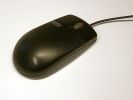
|
| |
Please note:
You are welcome to quote from the text or reuse the photos,
but only if you do not make a commercial gain from it,
and if you credit all sources as given.
Regrettably, the links to external web sites are not yet live.
Please copy and paste.
|
| |
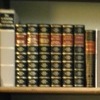
|
| |
|
|
[Next page]
Christina Egan, M.A.
Library Assistant - Cataloguing
Institute of Education
University of London
Tel.: 020 7911 5335
E-mail: c.egan@ioe.ac.uk
Last updated: 9 Dec 2006
 Photo above: freedigitalphotos.net
Photo right: Sebastien Clark
Photo above: freedigitalphotos.net
Photo right: Sebastien Clark






